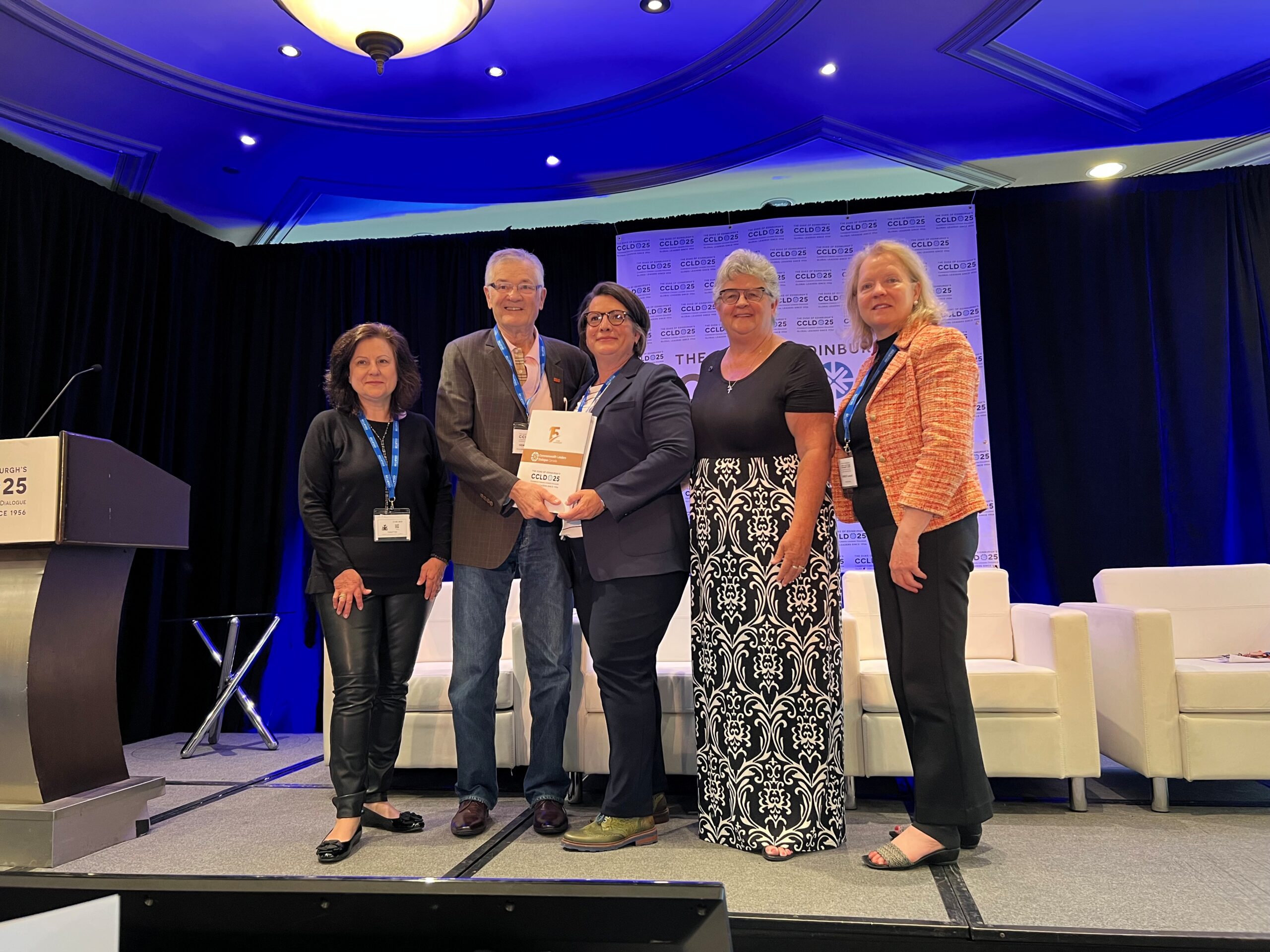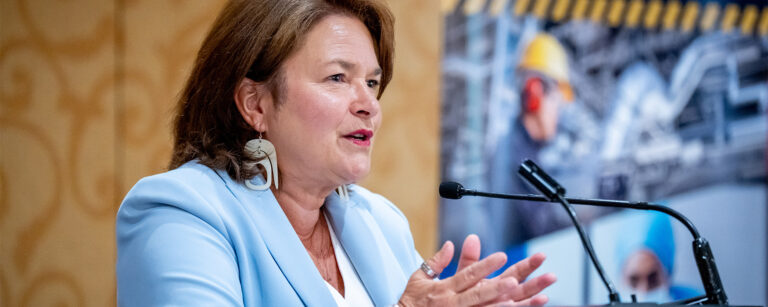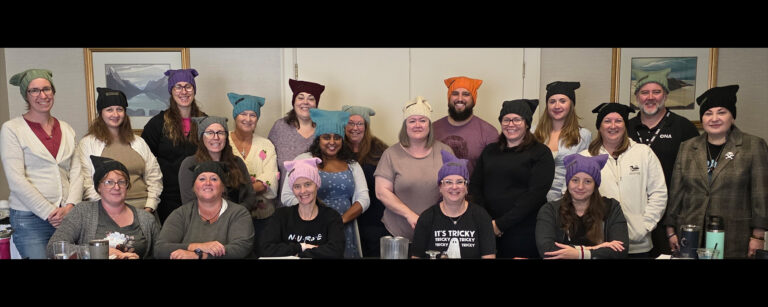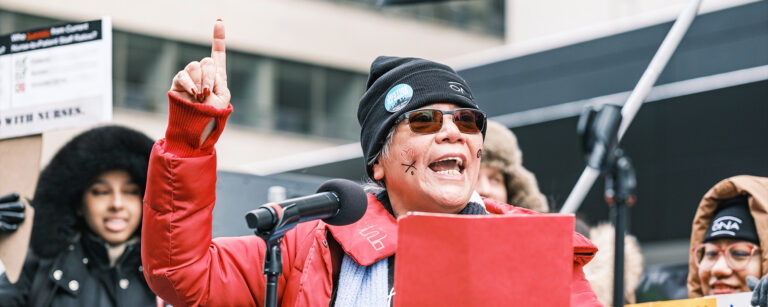ONA President Erin Ariss didn’t have to say one word to a group of international leaders before they broke out into resounding applause.
Ariss was asked to speak before the prestigious Caribbean Canada Leaders Dialogue on the work of ONA at its opening plenary in Toronto on May 24. This innovative conference, attended by Anne, The Princess Royal, is designed to foster collaboration and knowledge exchange. It brings together 100 leaders across labour, business, government, education and non-profit sectors.
ONA has a long, rich history of participation.
“I admit I was a bit nervous, as I wasn’t sure how formal or laid back the proceedings would be,” notes Ariss. “I came on stage and as soon as I said my name and that ‘I’m a proud registered nurse,’ the crowd erupted in loud applause. It put my mind at ease right away, and the next 90 minutes was magical.”
On their feet
During that time, Ariss highlighted the challenges and successes of our union before launching into a question-and-answer session with the delegates.
“ONA has accomplished so much in our five decades through campaigns, lobbying and perseverance,” she stated in her speech. “We have led provincial campaigns to enact laws requiring safety-engineered needles in workplaces, on workplace violence prevention and pay equity, and to strike down a discriminatory law called Bill 124 that penalized nurses by capping their wages during the pandemic.
“Each of our successful campaigns has one common thread: leadership. Championing the issue to make inroads and achieve results. Pushing our work into new areas and using new tactics to obtain changes that matter…It takes an army to change the world. Our ONA army is comprised of 68,000 members.”
Her remarks fit perfectly into the conference theme of Advocacy and Policy Reform: Impact-Driven Leadership – Creating Positive Changes in our Communities, which aimed to enhance leadership skills through peer-to-peer interactive learning, enabling participants to engage in meaningful discussions on complex, real-time challenges.
“The audience was on their feet more than once while I shared our story,” Ariss explains. “They were very receptive and appreciative of hearing about how we have grown and how we fight. And when I finished my remarks, dozens of people lined up to ask questions.”
Those questions included one from a firefighter from Jamaica, who asked about ONA’s fight for PTSD coverage as he was seeking the same benefits for his members. Another delegate recounted a very personal story about her labour and delivery nurse, which brought Ariss and many others in the room to tears.
“Another person asked about a photo of me wearing a certain pink hat, which was in my slide deck,” adds Ariss. “In that distinguished crowd, I said, ‘oh, you mean my pussy hat?’ And they went wild! The meaning of that hat, and of being willing to speak plainly about the struggles we all face as women, health-care workers and people fighting for better was not lost on them.”
Similar fights
She also came away with an incredible sense of validation and solidarity.
“This audience confirmed that ONA is on the right track, and that we must continue to do what we have for the past two years: organize, educate, tell the truth and fight.
“Across the world, we’re facing similar challenges. We’re not alone, and we must all continue the fight. But don’t just take it from me. Take it from this international crowd of leaders and gamechangers who wanted to learn from us and the many changes we’ve made in such a short time. Some hard, some contentious, but all have made us stronger together. We’re united. We all learn from one another. This is solidarity.”
Following the opening plenary, delegates, including an ONA staff member, embarked on immersive tours across various Caribbean nations, exploring themes that shape policy and innovation in the region. The hope is that the experiences they have will shape their approaches to decision-making, fostering innovative solutions for their respective communities.
“I continue to be proud of ONA’s involvement in this important initiative,” concludes Ariss. “When we engage with each other on similar goals, we all win.”





